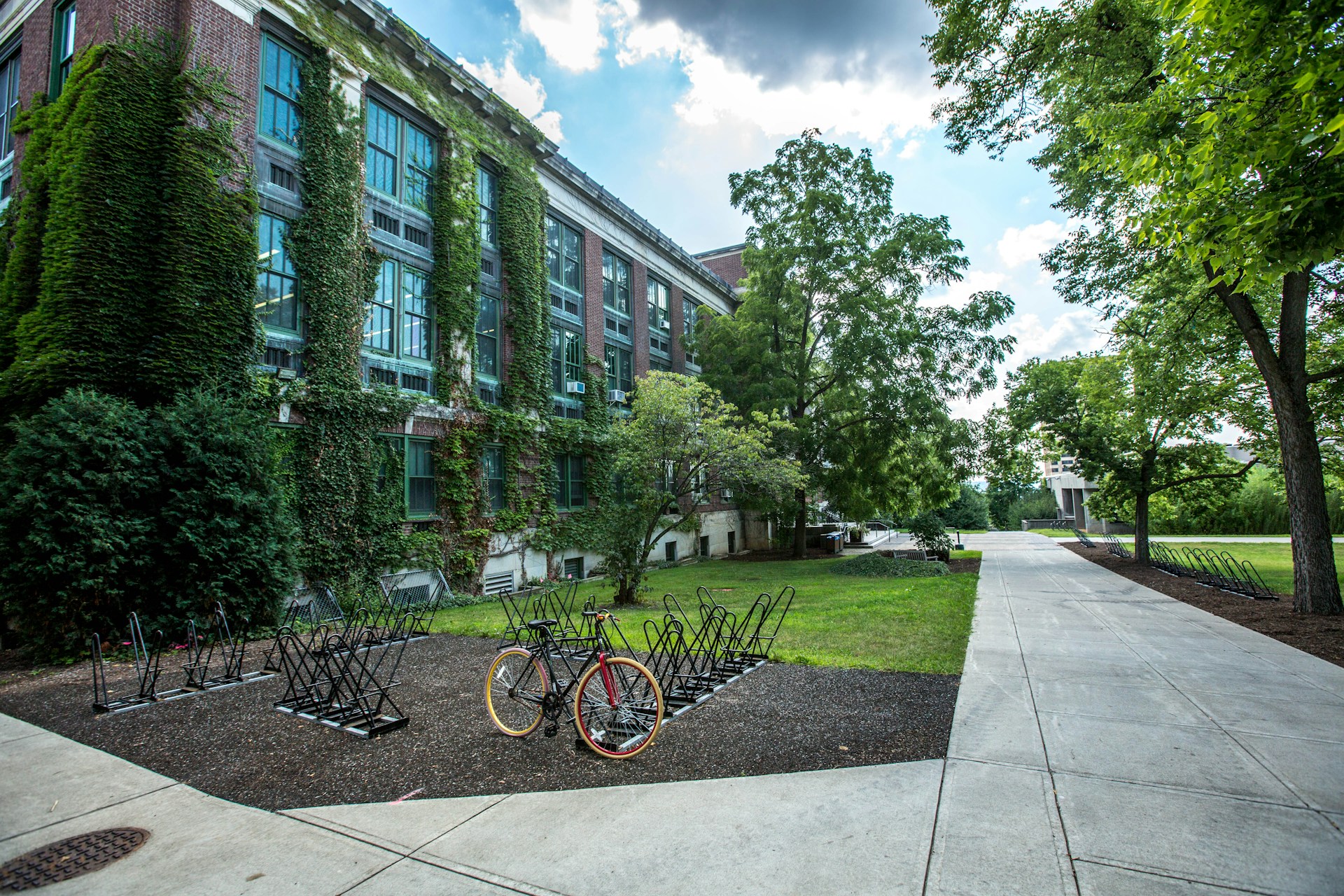
College campuses operate like small cities during the academic year. Many provide a wide range of amenities – from food courts to laundromats, theaters to 24-hour gyms, and housekeeping services to lawn care. Yet these cities are temporary, functioning as disposable residential experiences saturated in a throw-away, single-use culture. It is because of this that college campuses are prime for adopting innovative Zero Waste practices. Colleges and universities have an opportunity to modernize outdated and unsafe waste policies, to build generations of environmental stewards, and to create change for everyone who lives, works, and visits their campuses.
I learned this firsthand while running a university recycling and composting program, which included managing the massive amount of waste produced during move-in and move-out. Every August, we placed 10- and 30-yard recycling dumpsters at the residence halls to capture and recycle the mountains of cardboard boxes produced during move-in. When these loads of cardboard were brought to the city for recycling, they were frequently denied because they were too contaminated with materials like polystyrene foam and plastic to be recycled effectively.
Then came May. For move-out, we again placed 10- and 30-yard dumpsters at each residence hall to capture waste as students left campus. Anything students couldn’t squeeze into their cars went straight into those dumpsters. There was so much waste produced during the move-out process that the dumpsters had to be emptied daily throughout finals week.
This cycle isn’t unique to one campus – it plays out every year at residential colleges across the country. It is a cycle fueled by big-box retailers selling cheap “dorm essentials” made with toxic materials, and designed to last a semester or two before hitting the landfill. Colleges and universities need a better system – a system that prevents waste before it starts. This thought is what motivated me to reinvent our campus waste program.
Enjoying this story?
Read more from the Just Zero team! Our experts share their personal experiences, break down complex systems, interview other Zero Waste advocates, and provide updates on key issues. Explore more.
We addressed move-out first. Each spring, we set up lime green donation depots in every residence hall to collect used items in good condition – clothing, bedding, rugs, mini fridges, school supplies, food, toiletries, and more. These donation depots were strategically placed in lobbies and entryways and were readily accessible for the last two weeks of the semester. After graduation, the recycling team collected anything reusable or recyclable from the residence halls. By the end of May, we filled six tractor trailers with lightly used items ready for donation or reuse.
Our next step was to address the massive amount of new items being brought to campus each fall. To do this, we launched a move-in day sale featuring the lightly used items collected during move-out. We promoted the sale months in advance through presentations at new student visits and orientations, social media posts, and communications from Residence Life staff. The goal was simple: Encourage students to skip the shopping spree at big-box retailers and buy secondhand on campus instead.
It worked. Hundreds of students and their families participated in the move-in day sale, and we successfully prevented truckloads of materials from ending up in the landfill each year.
If this experience taught me anything, it is that colleges and universities are uniquely positioned to pilot Zero Waste initiatives and to push for innovative and significant changes. Residential campuses offer controlled environments where creative solutions can be tested, student engagement can be prioritized, and sustainability can be woven into all aspects of the educational experience.
Schools are no longer able to rely on one or two environmental champions to make sure the school is doing “the right thing” when it comes to our health, climate, and environment. Instead, schools need robust, institution-wide Zero Waste programs that prioritize the benefits of student engagement, education, stewardship, and growth. Unfortunately, funding cuts and limited resources make this work harder. But the cost of doing nothing is far greater.
With the right commitment, colleges and universities can transform their waste systems, shape the next generation of environmental leaders, and show students firsthand how real and lasting change begins.